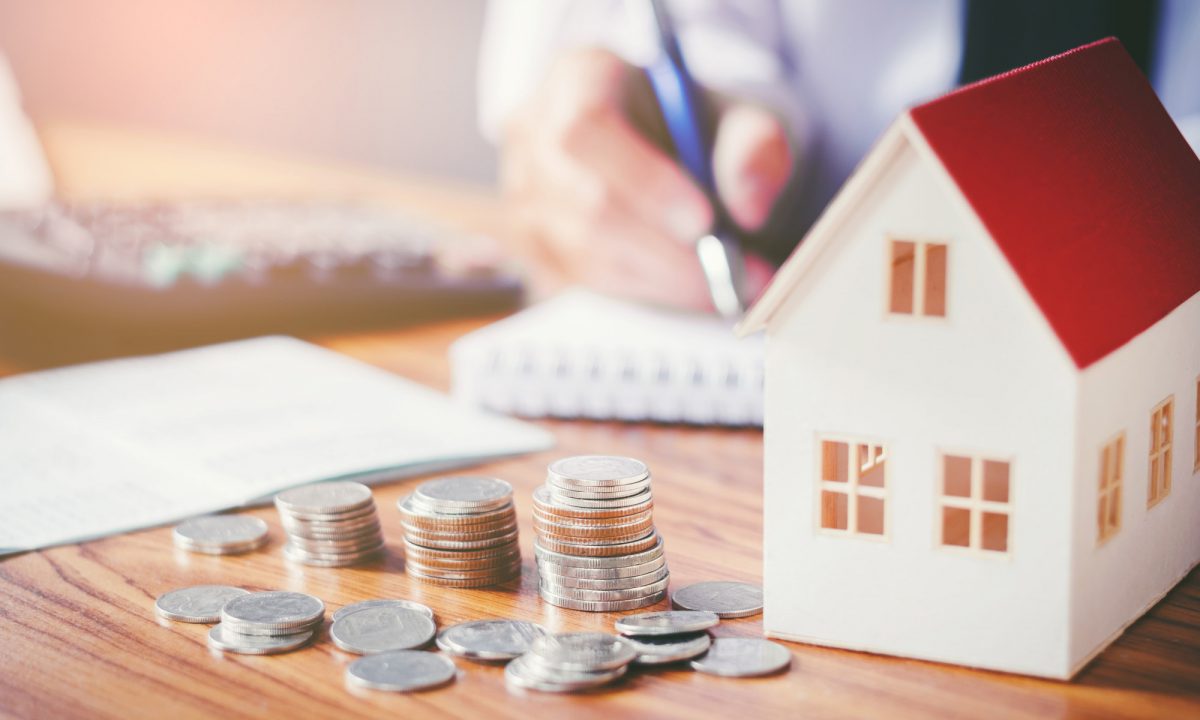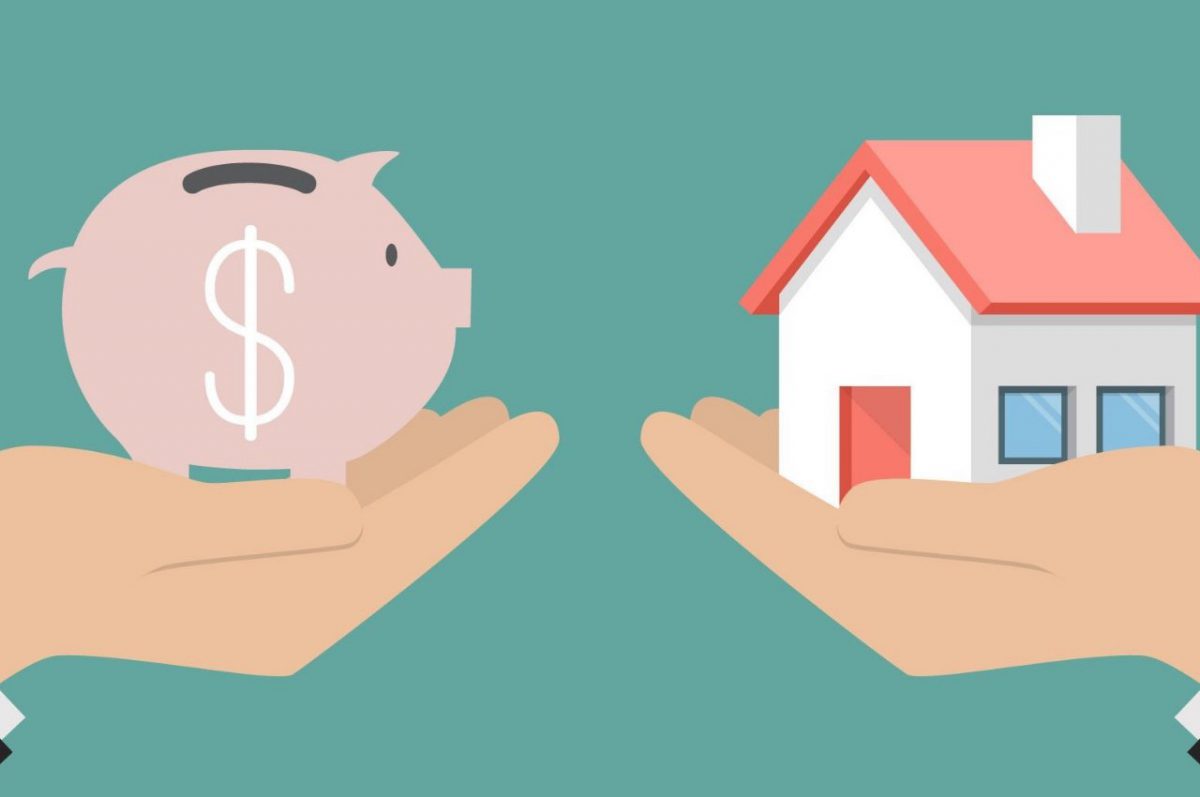How do you protect your investment in your first home? Despite the relief of finally being there after all the work of finding and buying the property, the financial planning and budgeting don’t stop once you collect the keys to your new home.
All the work you’ve already done should help the process. You had to determine how much home you can afford, pull together funds for a down payment and apply for a home loan. According to a survey by FREEandCLEAR, 75% of home buyers likened the mortgage-acquisition process to visiting the dentist or undergoing a physical exam.
Read our list of what you need to do next to keep the momentum going in securing this key stage in your financial life and building a firm foundation for your future.
Review Your Retirement Plan
Whipple says that, if your budget’s changing and increasing after buying a home, it’s important not to neglect your other financial goals. That includes saving for retirement. According to a report by GOBankingRates, 64% of Americans are on track to retire broke, and you don’t want to be one of them.
Check your contribution rate to your employer’s plan if you have a 401(k) or similar retirement account at work. Compare that with your newly updated budget to make sure that the amount is sustainable and determine if there’s room to increase it. If you don’t have access to a 401(k), consider substituting a traditional or Roth IRA.
Saving an emergency fund for non-housing related expenses and putting money into college accounts for your kids may also be on your list of goals. Hill says that new homeowners should be aiming to save at least six to 12 months’ worth of expenses in a liquid savings account for rainy days.
Whipple says that, if you’re struggling to make any progress toward saving after buying a home, you should take a closer look at your spending. “Making a budget is a great idea but sometimes that starts with tracking where your money is going so you know how much you actually need to budget.”
Revisit Your Budget
Agent Elizabeth H. O’Neill of Warburg Realty in New York City says it can be daunting to think about establishing a homeowner-oriented financial plan after you’ve just gone through the buying process, but it’s an essential step you can’t afford to skip.
“Sitting down and working out a budget will pay dividends,” O’Neill says, and your budget should thoroughly cover all the costs of owning a home. That includes your mortgage payment, as well as any increases in expenses associated with higher utility costs, homeowner’s association or condo fees, and maintenance or repairs.
The latter two are a significant consideration if you’ve recently made the transition from renting to owning. Having to fix a leaky toilet or replace a broken window out of pocket can come as a wake-up call if you’ve never owned before, O’Neill says.
According to a Bankrate survey, the average homeowner spends $2,000 per year on maintenance, including landscaping, housekeeping, and minor repairs. That amount, however, doesn’t cover larger expenses you may encounter as a homeowner, such as having to replace your HVAC system or roof, both of which can easily surpass $5,000.
Tad Hill, founder and president of Freedom Financial Group in Birmingham, Alabama, says that first-time buyers should set up a separate homeownership savings fund to cover bigger repairs. “The price range for these services is not small, so I’d suggest planning to keep at least $5,000 to $10,000 in cash so you have it available when something breaks.”
You’ll also need to leave room in your budget to set aside money for upgrades if you plan to overhaul your kitchen or update the bathrooms. Homeowners spent a median total of $15,000 on renovations in 2018, according to the latest U.S. Houzz & Home Annual Renovation Trends survey. Of the 142,259 respondents, 37% were likely to use credit cards to fund a renovation, but paying cash (as 83% did) can help you avoid high interest and finance charges.
In addition to avoiding new debt, you should also prioritize paying off any existing debt you have. Eliminating car loan, credit card or student loan payments can free up more cash that you can funnel into your home savings fund, and it can give you more breathing room in your budget. If you’re struggling to make progress with debt due to high interest rates, consider a 0% APR credit card balance transfer offer or refinancing student loans.
Update Your Insurance
As a first-time buyer, homeowner’s insurance is a must, but there may be other types of insurance you need as well, starting with life insurance.
“Life insurance is like a self-completing plan,” says Kyle Whipple, a financial advisor at C. Curtis Financial Group in Livonia, Mich. Insurance is used to reduce risk, and if you pass away, “it’s nice to know that proceeds, which are tax-free, can help pay off a mortgage.” That’s critical if you’re married and don’t want to leave your spouse burdened with debt. Life insurance can also be helpful in providing cash flow to cover monthly expenses or pay college costs for your children if you have a family.
O’Neill says that, when buying or updating a life insurance policy, you should ensure that you have at least enough coverage to pay off your mortgage and cover living expenses for your family for the first few years after you pass away. One question you may have is whether to choose a term or permanent life insurance policy.
Hill says that term life is the least expensive option since you’re only covered for a specific term. This type of policy can make sense if you’re a first-time buyer and you only need coverage while you still have a mortgage. Permanent life insurance, such as whole or universal life, lasts a lifetime and can offer cash value accumulation, but it can be much more costly. If you’re unsure of which to buy, Whipple suggests that you discuss your options with a licensed insurance broker or agent.
Disability insurance is something else to consider. According to the Centers for Disease Control (CDC) (CDC), 22% of adults in the U.S. have some type of physical or mental disability. If an injury keeps you out of work in the short-term or a serious illness requires an extended leave of absence, that could affect your ability to keep up with your mortgage payments. Short- and long-term disability insurance can help protect you financially in those types of scenarios.
Whipple says that you may also want to investigate insurance policies or home warranties to help with repair costs, especially if you have an older home. O’Neill recommends looking into whether you can get a discount by bundling homeowner’s insurance and other insurance policies together.
The Bottom Line
Buying a home creates new financial responsibilities, but with the right planning, you can keep from becoming overwhelmed. Ideally, preparing yourself financially begins before you ever buy a home, but even if you’re getting a late start, it’s important to make planning a priority.



